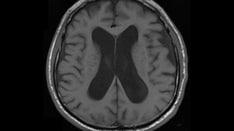This transcript has been edited for clarity.
Andrew N. Wilner, MD: Welcome to Medscape. I'm your host, Dr Andrew Wilner. Today, I have the pleasure of welcoming Dr Igor Koralnik to the program. Dr Koralnik is the Archibald Church Professor of Neurology and chief of Neuro-infectious Disease and Global Neurology at the Feinberg School of Medicine at Northwestern Medicine in Chicago, Illinois. Today, we are going to discuss a relatively new medical challenge, a disorder that has been termed "long COVID." Welcome, Dr Koralnik.
Igor Koralnik, MD: Good morning, everyone. Thank you for inviting me on this program.
Wilner: To get started, please describe the phenomenon of long COVID.
Koralnik: The general hypothesis that we and others have about long COVID is that it's a new autoimmune syndrome caused by persistent viral infection in hidden reservoirs that confuse the immune system into thinking something is wrong and it must be attacked. We believe this because 70% of the patients we see who had not been hospitalized for COVID are women, and women are more likely than men to develop autoimmune diseases such as multiple sclerosis, rheumatoid arthritis, and lupus. Furthermore, the prevalence of autoimmune diseases is higher in patients with long COVID compared with the US population. In addition, we see patients with long COVID who are developing autoimmune disease at a time when that was not supposed to happen. For example, an 80-year-old woman would be diagnosed with rheumatoid arthritis after developing long COVID.
As of today, I've seen more than 1650 patients in my neuro-COVID clinic and they all have neurologic manifestation of long COVID (also called post-acute sequelae of SARS-CoV-2 infection, or PASC). About 15% of patients were previously hospitalized with severe pneumonia, sometimes requiring intubation in the intensive care unit (ICU), during which they experienced complications affecting the nervous system. When they were discharged, they still had neurologic problems of various sorts. However, the other 85% of our clinic patients were never hospitalized for COVID pneumonia. They had mild cases — a sore throat or bit of a fever that went away. But thereafter, they developed lingering and debilitating manifestations of long COVID, which include brain fog, headache, dizziness, problems with smell and taste, muscle pain, tingling, blurry vision, and ringing in the ears — all associated with intense fatigue. Patients who weren't hospitalized with COVID are typically women in their 40s who were previously healthy and did not have any major neurologic problems before they develop those manifestations of long COVID.
Wilner: Wow. It's easy to understand that we might see sequelae among patients who experienced a stormy course in the ICU. But it's a lot more difficult to understand why someone who had only mild symptoms and a flu-like COVID illness doesn't improve. How long does long COVID last?
Koralnik: We opened the clinic in May 2020 during the lockdown, and we began to see patients who developed symptoms of long COVID in the spring of 2020. We ask patients who come to the clinic, "How different do you feel compared with before COVID?" If you say 100%, you're back to normal. Some patients improve quickly, especially if they only had the altered smell and taste. But brain fog, headache, and other manifestations tend to last longer. Everybody improves over time but at their own pace. We can't predict how long it will last. Some patients still have long COVID more than 2 years after being infected with COVID-19, including some who initially experienced a very mild illness.
Wilner: I've definitely heard some talk that these symptoms are kind of vague. I'm tired. I have brain fog. Is there any way to objectively demonstrate that these findings are not just psychosomatic?
Koralnik: Excellent question. And unfortunately, a lot of people who come to our clinic tell us that they're not being taken seriously by the medical establishment. Nonspecific symptoms have been chalked up to stress (especially during a pandemic) or are just considered psychosomatic issues, which is not the case. We give patients a validated questionnaire — the Patient-Reported Outcome Measure Information System (PROMIS), asking about quality of life, self-perceived cognitive ability, fatigue, anxiety, depression, and sleep disturbances. Based on those validated measures that have been tested in a very large number of people in the US population, we can tell that quality of life among long-COVID patients is worse than it is among the US normative population.
Wilner: As a neurologist, if I were to see a patient like this, my instinct would be to do a neurologic examination and probably follow up with an MRI of the brain, an EEG, and maybe even a spinal tap. What's the likelihood I'm going to find any abnormalities in these patients?
Koralnik: Every patient who comes to the clinic, either in person or by telehealth visit, has a 1-hour appointment during which we conduct a complete narrative history and a neurologic exam. And in most cases, especially in patients were never hospitalized with pneumonia, the neurological exam is unremarkable except for cognitive dysfunction.
Patients who have an MRI rarely have abnormal findings unless they were severely sick in the ICU and intubated with COVID pneumonia, or they may be older people who had another brain issue prior to COVID. Patients who undergo a spinal tap rarely have abnormal findings in their cerebrospinal fluid. We don't perform those tests routinely in our patient population.
You mentioned the EEG. We only perform an EEG if we think that they may be at risk for seizures, but we haven't seen that in our local population unless they had seizures before COVID.
Wilner: Dr Koralnik, I want to push you a little bit. I understand that there are objective cognitive findings on these various questionnaires. But isn't it true that these could also occur in patients with depression who would have objective cognitive deficits?
Koralnik: Certainly. We asked patients if they had depression and anxiety before COVID, and we found that there is a higher prevalence of depression and anxiety in patients who were never hospitalized with COVID-19. Some 40% said that they had depression or anxiety before COVID, which is higher than the general population. The rates of depression and anxiety are about 10% in those who were hospitalized with COVID-19 pneumonia. This is relevant for this population of patients, but it still means that 60% of patients who come to see us never had depression or anxiety before COVID, and then they develop debilitating brain fog and cognitive dysfunction that impedes their daily activities. Long COVID is real, unfortunately, and it can lead to severely impaired quality of life as well as economic hardship because these patients are not able to function the way they were able to before COVID.
Wilner: Is there any way to prevent long COVID? For example, can you still get long COVID after being vaccinated? Is it generally less severe? Does vaccination help prevent long COVID?
Koralnik: We always encourage our patients to follow the Centers for Disease Control and Prevention's (CDC's) guidelines on COVID-19 vaccination and booster vaccines. There are urban legends that vaccination either cures long COVID or makes long COVID worse. We looked at that in our analysis of the first 100 patients who came to the clinic who had not been hospitalized. We followed them with a second visit and found that vaccination did not prevent long COVID nor make long COVID worse. In large populations of patients who have been studied, it looks like long COVID (which was occurring in about 30% of people who survived COVID-19 before vaccines were available) has only decreased the incidence of long COVID by 15%. So, despite vaccination and boosting, about 25% of patients are at risk of developing long COVID. It varies from population to population, obviously. We don't yet know the exact number of people who are infected because most people are diagnosed with a rapid test at home. But unfortunately, vaccination and boosting do not prevent long COVID. People can also get first, second, or third infections with COVID-19 and develop long COVID. We see those patients in our clinic.
Wilner: Some patients with COVID get treatment with Paxlovid or antibodies. Do those treatments seem to have any relevance to whether they get long COVID or not?
Koralnik: You've heard about cases of patients who got treated with Paxlovid and then had a rebound of their COVID symptoms. As of now, those patients have not been studied in an organized fashion. The National Institutes of Health is currently organizing a treatment trial of 2 weeks of Paxlovid for patients with long COVID. That trial is still in the development phase.
Wilner: We do have many treatments for autoimmune diseases, however. Would you consider that?
Koralnik: This is something that should be looked at. If long COVID is indeed an autoimmune disease, it might be amenable to immunomodulation, but further research is needed. I have an active basic science laboratory that is looking at those issues, comparing the immune response of long-COVID patients with those who had COVID-19 but recovered and haven't had any other symptoms (also known as asymptomatic or convalescent COVID). We see striking differences in the immune response to SARS-CoV-2 protein between those two groups.
Wilner: Are you still seeing patients in your COVID clinic? Is that something patients should consider?
Koralnik: We are seeing between 50 and 70 new patients a month in the neuro-COVID clinic, as well as in the Northwestern Medicine Comprehensive COVID-19 Center, which was created for the total care of patients with long COVID. There are 12 specialty clinics, including pulmonology, cardiology, gastroenterology, endocrinology, rheumatology, ENT, and others. Specialists in these different disciplines see patients with various complications of long COVID, which is a multisystem syndrome.
Wilner: Is there anything you'd like to add before we close?
Koralnik: It's important for physicians to be aware that at the beginning of the pandemic, in the spring of 2020, patients would not be tested for COVID-19 by nasal swab unless they were hospitalized with pneumonia. We estimate that about 10 million people in the United States got COVID and subsequently developed long COVID, but could not be diagnosed in time. Those patients are suffering as much as the COVID-positive long-haulers but are even more rejected and stigmatized. Because those patients are mainly women in their 40s, this is really unfortunate. We see those patients in our clinic. We don't require a physician referral or a positive COVID test to be seen in our comprehensive COVID center. They are diagnosed with post-viral syndrome and are taken care of in the same manner as COVID-positive patients.
Wilner: Dr Koralnik, thank you very much for sharing your insights, experience, and research with Medscape. I'm Dr Andrew Wilner. Thanks for watching.
Follow Medscape on Facebook, Twitter, Instagram, and YouTube
Medscape Neurology © 2022 WebMD, LLC
Any views expressed above are the author's own and do not necessarily reflect the views of WebMD or Medscape.
Cite this: Andrew N. Wilner, Igor Koralnik. Neurologic Symptoms in People With Long COVID - Medscape - Dec 22, 2022.













Comments